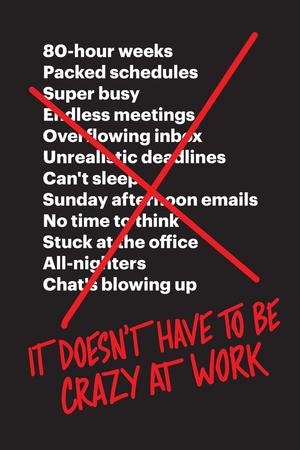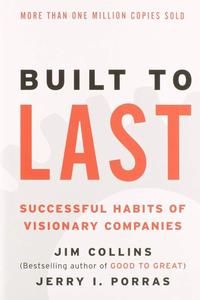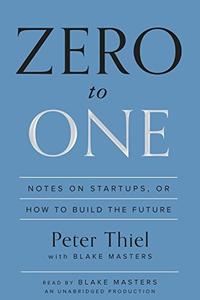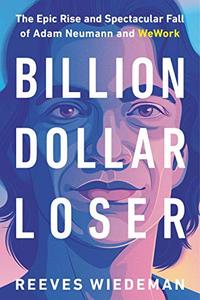
It Doesn't Have to Be Crazy at Work by David Heinemeier Hansson & Jason Fried: Summary & Notes
by David Heinemeier Hansson & Jason Fried
In One Sentence
The frantic pace of modern work culture is a choice, not a necessity—calm companies protect their people's time, attention, and sanity while still succeeding.
Key Takeaways
- "Crazy busy" is a choice, not a badge of honor
- Protect people's time: reduce meetings, interruptions, and ASAP culture
- 40-hour weeks are enough—crunch culture produces diminishing returns
- Set reasonable goals rather than impossible ones
- Benefits should enable life, not just work
- Growth at all costs often costs too much
Summary
I always enjoy the writing from DHH and Jason Fried, even if I don't always agree with their viewpoints.
Overall, this book is about maintaining calm in your life, and particularly at work. In a world of increasing pace and change, maintaining calm is becoming a more and more important skill, and this book was filled with practical insights on how to do it.
Who Should Read This Book
- Burned-out workers and managers
- Founders considering company culture
- Anyone questioning hustle culture
- Leaders wanting sustainable practices
FAQ
What is the calm company philosophy?
Basecamp's approach: protect attention, limit meetings, set reasonable hours and expectations. Reject the glorification of overwork. A calm company can be successful without sacrificing employee wellbeing.
Chapter-by-Chapter Breakdown
Notes
- Calm is meetings as a last resort.
- Calm is asynchronous first, real-time second.
- Your company is your product. Treat it like one.
- Goals are fake. Nearly all of them are artificial targets set for the sake of setting targets.
- Most of the time, if you’re uncomfortable with something, it’s because it isn’t right.
- Time and attention are best spent in large bills, if you will, not spare coins and small change.
- When was the last time you had three or even four completely uninterrupted hours to yourself and your work?
- When people focus on productivity, they end up focusing on being busy. Filling every moment with something to do.
- We believe in effectiveness. How little can we do? How much can we cut out? Instead of adding to-dos, we add to-don’ts.
- Ever notice how much work you get done on a plane or a train? It’s in these moments—the moments far away from work, way outside the office—when it is the easiest to get work done. Interruption-free zones.
- Getting on someone's calendar at Basecamp is hard. Friction has been added to the process on purpose, so it's less convenient and therefore avoided.
- You can’t credibly promote the virtues of reasonable hours, plentiful rest, and a healthy lifestyle to employees if you’re doing the opposite as the boss. It doesn't matter what you say, it matters what you do.
- Good questions for a boss:
- "What's something nobody dares to talk about?"
- "Are you afraid of anything at work?"
- Declaring that an unfamiliar task will yield low-hanging fruit is almost always an admission that you have little insight about what you’re setting out to do.
- Most conversion work, most business-development work, most sales work is a grind —a lot of effort for a little movement. You pile those little movements into a big one eventually, but that fruit is way up at the top of the tree.
- It’s not worth trading sleep for a few extra hours at the office. Not only will it make you exhausted, it’ll literally make you stupid. The science is clear on this: Continued sleep deprivation batters your IQ and saps your creativity.
- Sleep-deprived people aren’t just short on brains or creativity, they’re short on patience. Short on understanding. Short on tolerance. The smallest things become the biggest dramas.
- The quickest way to disappointment is to set unreasonable expectations.
- In our office, if someone’s at their desk, we assume they’re deep in thought and focused on their work. That means we don’t walk up to them and interrupt them. It also means conversations should be kept to a whisper so as not to disturb anyone who could possibly hear you.
- Following group chat at work is like being in an all-day meeting with random participants and no agenda. It’s completely exhausting.
- When it comes to chat, we have two primary rules of thumb: "Real-time sometimes, asynchronous most of the time" and "If it’s important, slow down."
- At Basecamp, we don’t dread the deadline, we embrace it. Our deadlines remain fixed and fair. They are fundamental to our process—and making progress.
- What’s variable is the scope of the problem—the work itself. Our projects can only get smaller over time, not larger.
- Another way to think about our deadlines is that they’re based on budgets, not estimates. We’re not fans of estimates because, let’s face it, humans suck at estimating. But it turns out that people are quite good at setting and spending budgets. If we tell a team that they have six weeks to build a great calendar feature in Basecamp, they’re much more likely to produce lovely work than if we ask them how long it’ll take to build this specific calendar feature, and then break their weekends and backs to make it so.
- When we present work, it’s almost always written up first. A complete idea in the form of a carefully composed multipage document. Illustrated, whenever possible. And then it’s posted to Basecamp, which lets everyone involved know there’s a complete idea waiting to be considered.
- We don’t want reactions. We don’t want first impressions. We don’t want knee-jerks. We want considered feedback. Read it over. Read it twice, three times even. Sleep on it. Take your time to gather and present your thoughts—just like the person who pitched the original idea took their time to gather and present theirs.
- That's how you go deep on an idea.
- Ship on Mondays.
- Now we even use that exact term in our discussions. "I disagree, but let’s commit" is something you’ll hear at Basecamp after heated debates about specific products or strategy decisions.
- Last thing: What’s especially important in disagree-and-commit situations is that the final decision should be explained clearly to everyone involved. It’s not just decide and go, it’s decide, explain, and go.
- Doing nothing is always an option, and should always be on the table.
- The only way to get more done is to have less to do.
- Nearly all product work at Basecamp is done by teams of three people. It’s our magic number. A team of three is usually composed of two programmers and one designer.
- Taking a risk doesn’t have to be reckless. You’re not any bolder or braver because you put yourself or the business at needless risk. The smart bet is one where you get to play again if it doesn’t come up your way.
- The problem with per-seat pricing is that it makes your biggest customers your best customers. With money comes influence, if not outright power. And from that flows decisions about what and who to spend time on. There’s no way to be immune from such pressure once the money is flowing. The only fix is to cap the spigot.
- At Basecamp we live this philosophy to the extreme. We don’t show any customers anything until every customer can see it. We don’t beta-test with customers. We don’t ask people what they’d pay for something. We don’t ask anyone what they think of something. We do the best job we know how to do and then we launch it into the market. The market will tell us the truth.
- It’s taken us a long time and a number of missteps to learn this core truth about selling: Sell new customers on the new thing and let old customers keep whatever they already have. This is the way to keep the peace and maintain the calm.
- Jean-Louis Gassée, who used to run Apple France, describes this situation as the choice between two tokens. When you deal with people who have trouble, you can either choose to take the token that says "It’s no big deal" or the token that says "It’s the end of the world." Whichever token you pick, they’ll take the other.
- Keep that in mind the next time you take a token. Which one are you leaving for the customer?
- You have a choice. And if you don’t have the power to make things change at the company level, find your local level. You always have the choice to change yourself and your expectations. Change the way you interact with people. Change the way you communicate. Start protecting your own time.




